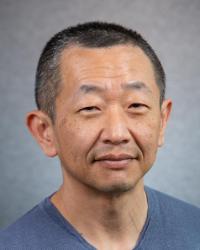The Fred T. Korematsu Center for Law and Equality joined in filing a Supreme Court amicus brief supporting the challengers in the ongoing 2020 census citizenship question litigation, Dep't of Commerce v. New York. Other amici include the Council on American-Islamic Relations (CAIR), and its New York chapter, CAIR-New York. Also among the amici are Norman Y. Mineta, a former Secretary of Commerce, and three other American citizens of Japanese descent whose incarceration during World War II was facilitated by the Census Bureau's sharing of confidential census data. Akin Gump is serving as pro bono counsel for the brief.
On April 23, 2019, the U.S. Supreme Court will hear oral arguments pertaining to whether the Secretary of Commerce's decision to add a citizenship question violated the law. Challengers argue that the government was driven by racial and xenophobic animus, and has since invented justifications for the change in policy. Judge Furman of the Southern District of New York ruled that the Department of Commerce added the citizenship question through a process that violated the Administrative Procedures Act, and made several findings of fact suggesting that the government's justifications are pretextual.
In the brief filed April 1, amici argue that the Supreme Court should affirm Judge Furman's judgment and reject the government's pretextual reasons for adding a citizenship question to the decennial census. Amici emphasize that, because public participation in the census is voluntary, the census process works only if the public trusts that the government will not misuse the information. Though the Census Act prohibits the government from using census information for anything other than statistical purposes, past incidents in which the government misused census data support fears that citizenship information could be misused.
Amici remind the Court of one of the most glaring and heinous examples of such abuse: the Census Bureau's central role in targeting Japanese Americans for incarceration during World War II. In that instance, the Supreme Court's deference to the executive branch contributed to an appalling violation of civil and human rights. Amici argue that the Supreme Court must impose searching judicial scrutiny to root out any pretext for an unconstitutional census policy.

As Professor Robert S. Chang, executive director of the Korematsu Center, explains, "The shameful legacy of Japanese American incarceration during World War II shows what can happen when the courts allow themselves to be fooled by the government's pretexts for unconstitutional policies. We urge the Court to conduct a searching review in this case to determine whether the government's real reasons for adding a citizenship question to the census — in a process the trial judge found to be deeply flawed — support its decision or are simply a mask for a question that could deter the full participation of immigrants and communities of color."
Ahmed Mohamed, litigation director of CAIR New York, explains, "The Court must protect the integrity of the Census. This Administration must not be given an opportunity to weaponize the census to suppress the voice of immigrants and minorities. We urge the Court to fulfill its duty and block unlawful discrimination."
Lead pro bono counsel Pratik A. Shah, co-head of the Supreme Court and appellate practice at Akin Gump Strauss Hauer & Feld LLP, states, "By eroding public trust in the process, the Secretary's addition of a suspect citizenship question only undermines the government's ability to fulfill its constitutional census duty."
Pro bono counsel on the brief are: Robert S. Chang and Lorraine K. Bannai of the Fred T. Korematsu Center for Law and Equality at Seattle University School of Law; Ronald A. Peterson of the Law Clinic at Seattle University School of Law; as well as attorneys from Akin Gump Strauss Hauer & Feld LLP, including Pratik A. Shah, as Counsel of Record, Robert H. Pees, Alice Hsu, Z.W. Julius Chen, and Geoffrey J. Derrick.
The amicus brief filed in the United States Supreme Court is available here.
